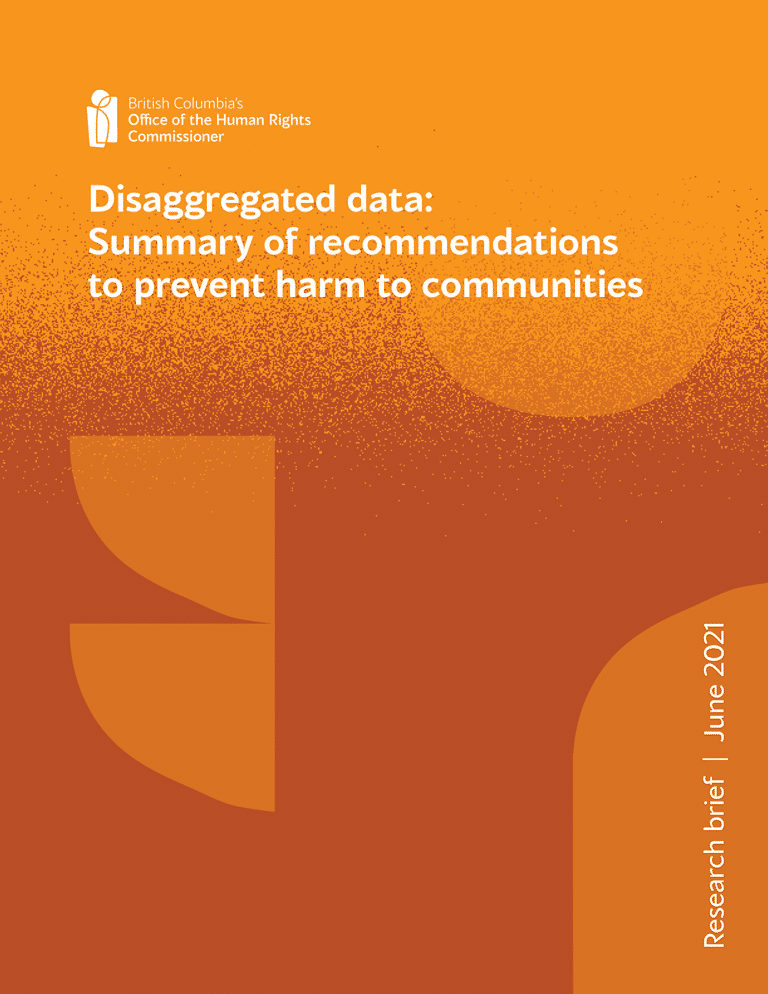In the fall of 2020, BC’s Office of the Human Rights Commissioner (BCOHRC) released a report with recommendations on how to collect, store, use and disclose disaggregated data in a way that furthers the aims of equity and justice without reinforcing marginalization.
Disaggregated data is important because when policy, practice and law are based on statistics, silences and omissions in data can cost human lives, human well-being and human rights. On the other hand, collecting data can cause numerous harms if not done well. This brief summarizes BCOHRC’s recommendations for mitigating those potential harms.
Or read the full report:
Disaggregated demographic data collection in British Columbia: The grandmother perspective

If the version available via this page is not accessible for you, please feel welcome to contact our Office to request a printed copy or another format that meets your needs.
DISAGGREGATED DATA: SUMMARY OF RECOMMENDATIONS TO PREVENT HARM TO COMMUNITIES
June 2021
© British Columbia’s Office of the Human Rights Commissioner
British Columbia’s Office of the Human Rights Commissioner (BCOHRC) encourages the dissemination and exchange of information presented in this publication. All material presented in this publication is licensed under the Creative Commons Attribution 4.0 International Licence with the exception of photographs and images, BCOHRC’s logo, any branding or trademarks, content or material provided by third parties and where otherwise indicated.
British Columbia’s Office of the Human Rights Commissioner. Disaggregated data: Summary of recommendations to prevent harm to communities. British Columbia’s Office of the Human Rights Commissioner, 2021. https://bchumanrights.ca/publications/datacollection-harm/.
- Previous publication:Adding “social condition” as a protected ground to B.C.’s Human Rights Code
